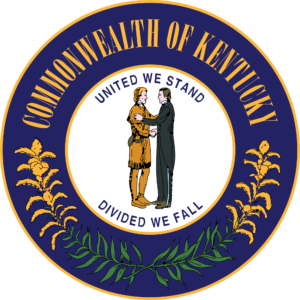(update: Just got a tweet from GiveGood2012, which said,
Hurrah for them! For all of us! Now, just several thousand other people to go…)
Back in December of 2011, I blogged about Survival Strategies for Nonprofits, also applicable to non-governmental organizations, (NGOs), community based organizations (CBOs), charities, and government agencies focused on the community or the environment, etc., per the current dire economic climate. I wrote that blog in response to so many blogs on similar themes that I found unrealistic – or that said something like this:
Are you a #charity or #socent who needs help to cut costs? Read about our skilled volunteer matchmaking service (a tweet from GiveGood2012)
As my long-time followers know, these kinds of statements drive me crazy, because:
- Volunteers are NOT free. There ARE costs associated with involving volunteers, particularly volunteers in high-responsibility roles. To involve volunteers effectively, YOU NEED MONEY.
- People looking for jobs (and, in case you haven’t noticed, there are a LOT of people looking for jobs), as well as unions, read those statements and say, “See, this is where we opposed volunteer involvement – you are doing this to replace paid workers!” It’s why the union of professional firefighters in the USA opposes all volunteer firefighting programs. It’s why the unionized school employees in Petaluma, California protested volunteer involvement in schools. Why shouldn’t they be outraged – you just said volunteers could – and will – take paid jobs away!
- It leads to poor decision-making by boards of directors and governments. I was contacted by a state historical agency once upon a time. There were patrons of the state historical library that frequented the site and helped fellow visitors in finding information on an ad hoc basis. The agency decided to formalize the activities as a volunteer program, so visitors would know they were talking to someone who officially-represented the organization, so helpers received the proper training, and so helpers received the proper thanks. The informal helpers became formal volunteers, and the volunteers loved it — they saw it as a “promotion”, as a recognition of their knowledge and past help. The volunteer program flourished over just a couple of years, and the agency decided to present it as a success story to the state legislature, which provides funding for the library. Unfortunately, agency representatives presented it in terms of money saved: they calculated a dollar value for each hour the volunteers had contributed, and said, “This is how much money we saved involving volunteers.” And the state legislature was very impressed — so impressed that they cut one of the paid staff member positions and other budget items, and told the agency to do more with volunteers “so you can save even more money.
If you are thinking of converting any roles at your organization from paid to volunteer, do not think of it nor talk about it as a way to save money, and do not think of it nor talk about it as a temporary solution.
Instead, think of it as a permanent re-alignment of your organization. You are doing this for strategic reasons – choose to reserve certain roles for volunteers because you have decided volunteers are the best people for those roles.
Consider this:
- Does the American Red Cross train mobilize thousands of volunteers to staff most of its services during crisis situations because it “saves money”, or because volunteers are actually the best people for those tasks?
- Does the Girl Scouts of the USA have volunteers deliver the vast majority of its programs to girls to save money, or because volunteers are the best people for those roles?
- Do many women’s domestic violence shelters reserve the role of victim’s advocate for volunteers because it “saves money”, or because its clients prefer to work with someone they know is volunteering in that role – they aren’t there for the pay, but because of their desire to help?
- Does CASA recruit and train volunteers to help children in the court system to save money, or because volunteers are actually the best people for those roles?
When I was directing the United Nations’ Online Volunteering service, administered through UNDP/UNV, the head of UNV at the time, Sharon Capeling-Alakija (whom I miss every day), said something really interesting in a staff meeting that I have never forgotten: she said the reason she was so committed to the OV service was because, without it, “the only way people can be involved in UNV is to become a UNV and going into the field for two years, or by becoming a staff member at headquarters – and most people can’t do this. With this, anyone can be involved in our work now.” I loved that statement. I’ve never forgotten it.
If your organization or program decides that its going to increase the number of volunteers it involves, then reserve certain roles exclusively for volunteers – for instance, all consultancies that will support staff, all front desk/phone staff, all bloggers, all conference support staff, all food servers, etc., and make it a permanent change that will last even when the economy gets better.
Not only are volunteers NOT free, this realignment regarding volunteer involvement will cost money – probably more money than you are already spending now to support and involve volunteers: more volunteers will need to be screened, trained more than once, and supervised and supported, and all employees and volunteer staff in leadership roles will need training on how to work with volunteers – and training is rarely free!
Develop a mission statement regarding why your organization involves volunteers. For example:
All tasks at our organization related to advising new entrepreneurs/mentoring young people/delivering meals/repairing bicycles are reserved for volunteers. We feel these roles, which are fundamental to the meeting of our organization’s mission, are best done by volunteers – unpaid staff donating their time and talent – rather than paid employees.
Such-and-such organization reserves certain tasks and roles specifically for volunteers, per our commitment to create opportunities for the community to participate in, offer feedback and endorse our work.
As a part of our commitment to both transparency and to creating opportunities for community investment in our organization, such-and-such organization welcomes volunteers in a variety of roles, including activities that directly support our paid employees, leadership positions and client services.
Just as some jobs are best done by paid employees, some tasks and roles at our organization are best done by volunteers. We therefore reserve certain positions for volunteers, including…
Our organization involves volunteers so that we can tap into skills, experiences and talents beyond what our excellent professional staff already bring to our organization and its work.
Every employee at our organization looks for ways to involve volunteers in his or her work. This is part of our commitment to involving the community in all aspects of our work.
Such-and-such organization is committed to helping to cultivate new professionals in the field of name-of-field-redacted. Therefore, we reserve certain tasks and roles for volunteer interns, to provide career-development experiences to emerging professionals.
Lots more advice on writing a mission statement for your organization or program, and examples of such, here.
Also see:
Going all-volunteer in dire economic times: use with caution
The Value of Volunteers (and how to talk about such)



